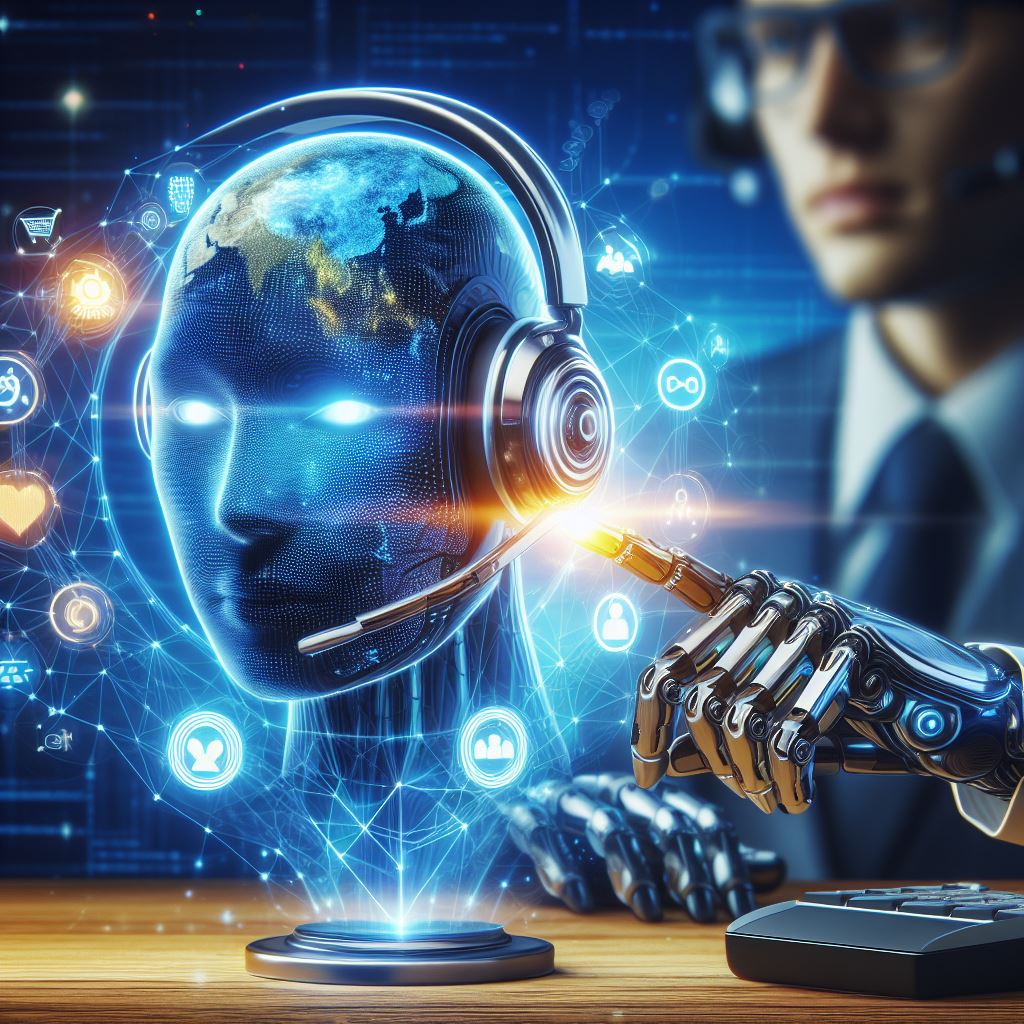In today’s fast-paced, tech-driven world, customer experience is more crucial than ever. As customer expectations rise, businesses must adapt to meet their demands. Enter artificial intelligence (AI). AI is transforming the customer service landscape by streamlining processes, enhancing personalization, and providing faster, more efficient support. From AI-powered chatbots to predictive analytics, these tools are reshaping how businesses interact with their customers.
The Growing Role of AI in Customer Service
AI-Powered Chatbots:
One of the most game-changing developments in customer service is the use of AI-powered chatbots. These virtual assistants, equipped with natural language processing (NLP) and machine learning, can handle a variety of customer inquiries in real-time. This allows for faster response times, reducing the strain on human customer service teams while providing customers with quick and accurate solutions.
Predictive Analytics:
AI also enables businesses to leverage customer data for predictive analytics. By analyzing past behavior and preferences, AI tools can predict customer needs and offer personalized recommendations, improving satisfaction and loyalty. This proactive approach allows companies to address customer issues before they even arise, creating a smoother, more seamless experience.
Enhancing Customer Support with AI
Automation:
AI is making customer support more efficient through automation. Repetitive tasks, such as handling common inquiries or requests, can be automated, allowing human agents to focus on more complex issues. This not only speeds up response times but ensures customer service is available 24/7, providing support whenever needed.
Natural Language Processing (NLP):
NLP allows AI systems to understand and interpret human language, enabling them to engage in more natural conversations with customers. This creates a more personalized experience, where customers feel heard and understood. Chatbots using NLP can simulate human-like interactions, building stronger relationships between the customer and the business.
Key Benefits of AI in Customer Service
- Higher Customer Satisfaction:
AI enables businesses to offer quick, personalized responses, improving the overall customer experience. Customers are more likely to remain loyal when they feel valued and receive timely, relevant support. - Increased Efficiency:
By automating routine tasks, AI allows customer service teams to handle more inquiries with fewer resources. This leads to cost savings, faster response times, and better allocation of human agents to more pressing issues. - Data-Driven Insights:
AI tools can gather and analyze large amounts of customer data, offering insights into customer preferences, behavior, and pain points. Businesses can use this information to make data-driven decisions that improve products, services, and customer engagement strategies.
Leveraging AI for Personalized Customer Interactions
One of the most powerful features of AI is its ability to personalize interactions. By analyzing customer data, AI can tailor communications and product suggestions based on individual preferences. This leads to stronger customer relationships and higher satisfaction, as customers receive recommendations that resonate with their needs.
The Future of AI in Customer Service
As AI continues to advance, its role in customer service will only grow. Future innovations in machine learning, NLP, and predictive analytics will drive even more sophisticated customer interactions. Businesses will increasingly rely on AI-powered tools to stay competitive and deliver exceptional customer experiences.
Overcoming Challenges in Implementing AI
While AI offers significant benefits, businesses must address certain challenges during its implementation. Data privacy, algorithmic bias, and seamless integration with existing customer support systems are key concerns. Ensuring that AI systems are transparent and ethical will be critical for maintaining customer trust.
Empowering Human Agents with AI
AI is not designed to replace human agents but to augment their abilities. AI tools can provide agents with relevant customer data and suggested solutions, allowing them to offer more personalized and efficient support. The synergy between AI and human expertise enhances the customer service experience, making it more effective and responsive.
Ethical Considerations in AI-Powered Customer Service
As AI becomes more prevalent in customer service, ethical considerations like transparency, accountability, and fairness are crucial. Businesses must ensure that AI systems protect customer privacy, avoid biases, and maintain ethical standards. This builds trust and ensures that AI solutions enhance, rather than harm, customer relationships.
The Continuous Evolution of AI in Customer Service
AI is constantly evolving, and its impact on customer service will continue to expand. Advances in AI-powered chatbots, NLP, and machine learning will lead to even more intelligent and context-aware interactions. As data analytics improve, businesses will gain deeper insights into customer behavior, leading to more effective customer engagement strategies.
Conclusion
AI is revolutionizing customer service by offering personalized, efficient, and automated solutions. Through AI-powered chatbots, predictive analytics, and automation, businesses can improve customer satisfaction, enhance engagement, and streamline support operations. As AI technology evolves, its role in shaping the future of customer service will become even more significant, enabling companies to deliver outstanding service and build lasting customer relationships.
